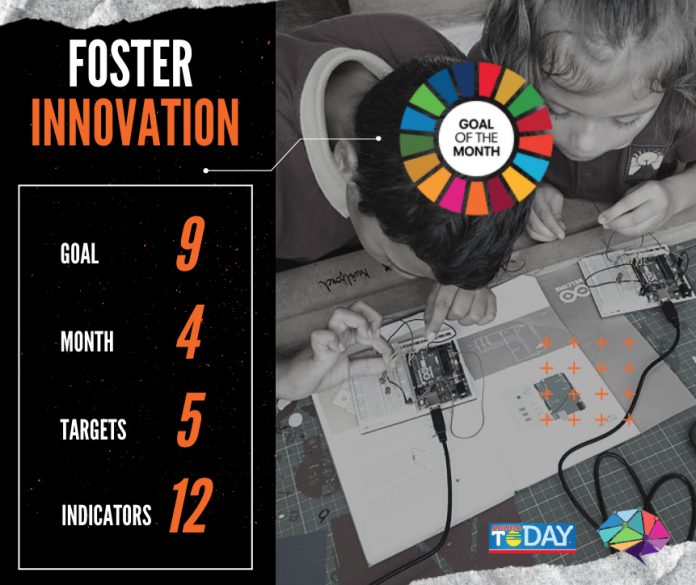March is usually a special month for us in Aruba. We celebrate our national flag and anthem day on the 18 th amongst our friends and families, but this year we were quarantined inside while registering this new pandemic called the coronavirus (covid-19) in our minds. For a small island, such as Aruba, the socio-economic impact thus far has been immense.
It has been at least 4 decades since the island experienced a national curfew or further than that, a partial shutdown. The sadness experienced once the last planes full of tourists left the island, leaving the hotels completely empty was something we as locals never dared to imagine. The reality hit so deep, the corona paralyzed much of the socio-economic development, especially within the Aruban creative industry. This loss is not only an Aruban experience but is a global phenomenon. The only difference is, for small islands like Aruba, creatives are hit even worse.
As the month of April approaches, the Creative Islander introduces a new goal of the month. Since the beginning of 2020, each month we highlight one of the seventeen sustainable development goals (SDG) from the United Nations. Fortunate for us, this month we will be discussing SDG 9, which focuses on building resilient infrastructures, promoting inclusive and sustainable industrialization, and foster innovation. Two words that pop out from this considering the health and economic climate we are in now are: resiliency and innovation. Between the five targets of goal 9 there are some interesting reoccurring concepts, such as: industrial diversification; inclusive and sustainable industrialization; affordable and equitable access for all; increase the access of small-scale industries; enhance scientific research; upgrade the technological capabilities of industrial sectors; encouraging innovation, increasing the number of research and development; enhanced financial, technological and technical support; support domestic technology development; and increase access to information and communications technology.
The Aruban government estimated that approximately 25.000 people would lose their jobs in due to the Coronavirus and that the Governments revenue will experience a loss of 627 million Aruban florins resulting in the GDP falling with 44.4%. This news was devastating and encouraged the Aruban government to account for this unprecedented crisis. Many policy instruments have been considered to possibly remedy this situation and has led to 1.3 billion deficit in the yearly budget, thus with money we don’t have. The Aruban government has stated that they will provide 214 million to individuals who lost their job due to the Corona crisis, 40 million to SMEs, and 423 million to help with losses in social funds. The Minister of Finance, Economic Affairs and Culture, Ms. Xiomara Maduro has announced the Fiscal Relief plan for 2020 amid the Corona crisis. However, this fiscal relief only counts for “casino’s, transport and tour operators, security companies, café’s, bar and restaurants, landscaping, spa’s, car rentals, traveling agencies, watersport companies, carwash, laundry, cosmetic stores, jewelry stores, retail stores, souvenir shops, ground handlers, employment agencies, and construction companies”.
It is still not clear of these fiscal relief remedies could count for SMEs in the Aruban Creative Industry, since the majority of them depend on the Aruban Tourism Industry. Tackling this new drama saga called Coronavirus has forced Aruban Small and Medium Enterprises (SMEs), especially the F&B industry to switch up to online shopping and delivery services just to make sure that the loss of customers does not drastically increase. Crisis has forced the Aruban economy to realize the importance of innovation, technological upgrade, and e-commerce. More than this, it has proven that Aruba can innovate, and should not wait till a crisis hits to do this. The innovative initiatives of local companies have been so limited. It seemed to be quite difficult to convince business owners that simple services such as online shopping could be done on the island too.
The real reason why we need to diversify Aruba has been proposing economic diversification for a long time. Report after report, conference after conference, government after government, it has remained difficult to develop new economies and see this through. The detrimental high dependency on tourism together with the Corona crisis has left Aruba as possibly one of the most vulnerable countries according to a recent Standard & Poor’s report. As a country, we have nothing else to rely on but the income we receive from tourism. Without this income, it will be difficult to stay afloat and meet all demands. The previously mentioned loss projections will be difficult to swallow, especially since we here headed for a budget surplus this year. In the Economic Report 2019-2021, the Minister established the 6 promising economies for the island, which include: tourism, agriculture industry, circular economy, knowledge economy, logistics, and the creative industries.
The Corona crisis completely wiped out one of the six economies, leaving us with 5 underdeveloped or in some cases even non-existent economies to fall on. What has been really eye-opening is the fact that food security is one of the most important factors for enduring any type of crisis. Aruba imports much of its livelihood and is not self-sustainable. According to the Food and Agriculture Organization (FAO) in the Food Security and Nutrition in Small Island Developing States Report; “small countries of the Caribbean have seen their exports decline and their food and agricultural imports increase during periods of growth in recent years” (p.5).
The challenges of the development of the agriculture industry is summarized by the lack of competitiveness, ageing agricultural population, inadequate investment by both the public and private sectors, non-innovative entrepreneurship and increased scarcity of natural resources worsened by natural disasters and climate change. For the creative industry, even though this crisis is experienced as blow, the focus should not be on cancelations but of postponing development. Not canceling shows, concerts, festivals, movie premiers, book launches, dance recitals, art galleries, tv productions, music album debuts, but simply postponing them. This crisis does offer Aruba a chance to hit the reset button. To truly make a roadmap for developing new economies for the country. We cannot keep fighting fires as they sneak up on us, but rather we should use this as an opportunity to learn a valuable lesson: creativity together with innovation leads towards sustainability.
Moving Forward.
Aruba is known for being resilient, but this will be our biggest trial. No challenge comes easy, but the lesson is always greater than the downfall. Aruba has proven to overcome many obstacles over the years and without doubt we will survive once this storm passes. Let’s hit the reset button and truly make sure we don’t fall in this trap again. The Creative Islander would like to remind everyone to practice social (physical) distancing, leave the house only if needed, and to wash their hands frequently throughout the day. Stay healthy and stay safe Aruba. In the words of our Prime Minister, Evelyn Wever-Croes: “the world changed one day to another, without a warning. I know that it is difficult, but I am making you a promise: we will overcome this crisis and we will rise as a stronger Aruba”.











